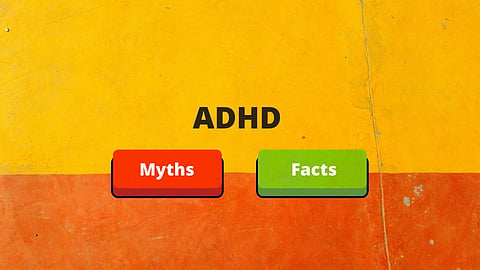
- Mental health mattersMental health matters
- Mental IllnessMental Illness
- Life stagesLife stages
- Caregiving
- Workplace Mental Health
- Legal Matters
- Subscribe

Myth: Any child that is hyperactive has Attention Deficit Hyperactivity Disorder (ADHD)
Fact: If you feel that the child has symptoms of ADHD, it is important to seek an expert’s opinion. The term ADHD is being loosely thrown around these days, but in truth, for a child to be diagnosed with ADHD, the medical expert has to factor in observations made of the child in atleast three different settings (such as at home, school and a social setting).
Myth: ADHD drug is a magic bullet.
Fact: The effect of the ADHD drug usually lasts six hours, during which time the child may be more focused on the task in hand. However for ADHD to be treated effectively, there has to be a combination of medication and other behavioral and lifestyle interventions.
Myth: We all have ADHD.
Fact: We all have days when we feel a bit inattentive and disorganized, but for someone to receive an ADHD diagnosis, they need to have at least six out of nine symptoms each for hyperactivity-impulsivity and inattention. These symptoms can significantly impair the person’s everyday routine (for example missing deadlines, impulsive spending).
Myth: Only children have ADHD.
Fact: ADHD is commonly diagnosed in childhood, typically before the age of seven. As they grow older, hyperactivity and impulsivity may decrease, but inattention may still persist. Adult ADHD is a recognized entity.
Myth: ADHD is not linked to any other mental health condition.
Fact: Children with untreated or inadequately treated ADHD are at a greater risk for mental health problems. Most commonly associated problems are conduct disorder, mood disorder, anxiety disorder and learning disabilities.
This article has been reviewed by Dr T Sivakumar, additional professor of psychiatry at NIMHANS
We are a not-for-profit organization that relies on donations to deliver knowledge solutions in mental health. We urge you to donate to White Swan Foundation. Your donation, however small, will enable us to further enhance the richness of our portal and serve many more people. Please click here to support us.
